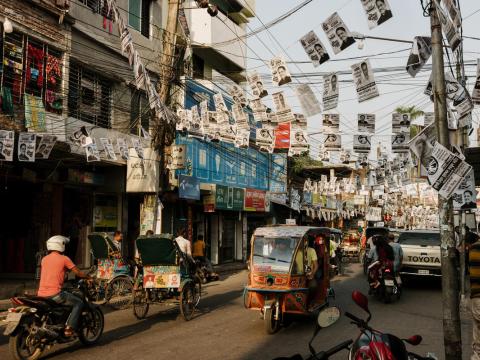Urban residents reclaiming their voices: Transforming governance in Dhaka and Bamako

What happens when city residents stop waiting for change and start demanding it? For decades, urban governance was a top-down affair. City plans, budgets and policies were drawn up in boardrooms, far from the voices of the people they affected. Today, social accountability is flipping that script—putting power back in the hands of communities. Social accountability, the practice of citizens engaging with government to demand better services, is no longer a luxury. In rapidly growing cities, it’s a necessity for survival, equity, and resilience.
In the bustling heart of Dhaka, Bangladesh and the rapidly growing city of Bamako Mali, two powerful stories of transformation are unfolding. Through World Vision’s Citywide Approach to urban programming, together with the Citizen Voice and Action the organisation’s Social Accountability approach, communities in these urban centres are rewriting the narrative of civic engagement by holding their local and city governments accountable for service delivery. These initiatives ensure that services are more responsive to the needs of urban communities, contributing to more equitable and sustainable development outcomes.
In Dhaka’s Mirpur neighbourhood, where informal settlements are widespread and urban children’s exposure to vulnerability factors is heightened, World Vision Bangladesh has pioneered a bold initiative to bridge the gap between citizens and law enforcement. By empowering youth and community leaders to engage directly with police, the CVA model has led to the creation of child-friendly help desks, improved community-police relations, and national policy shifts that are now being replicated across Bangladesh.
Meanwhile, in Bamako, Mali, World Vision has adapted the CVA model to navigate the city’s complex governance and high-density challenges. In neighbourhoods like Yirimadio and Senou, CVA groups have mobilised citizens to advocate for better health, education, and sanitation services. From embracing digital platforms such as WhatsApp-based community dialogues to successful lobbying for road safety measures, the initiative has sparked tangible improvements in service delivery and civic participation.
These case studies are not just about policy—they are about people. They showcase how informed, organised communities can influence systems, hold authorities accountable, and create safer, more inclusive cities for children and families. As cities grow, so too must the voices of those who live in them. When citizens claim their rights to question, participate, and co-create solutions, cities become more than just places to live; they become engines of equity and resilience. The future cities depend not only on infrastructure and investment, but on the strength of civic engagement and the courage to hold power to account.
Whether you're a development practitioner, policymaker, or urban changemaker, these stories offer practical insights and inspiring outcomes that demonstrate the power of participatory governance in even the most challenging urban environments.
Read the full case studies to discover how Citizen Voice and Action is reshaping urban futures—one city at a time.